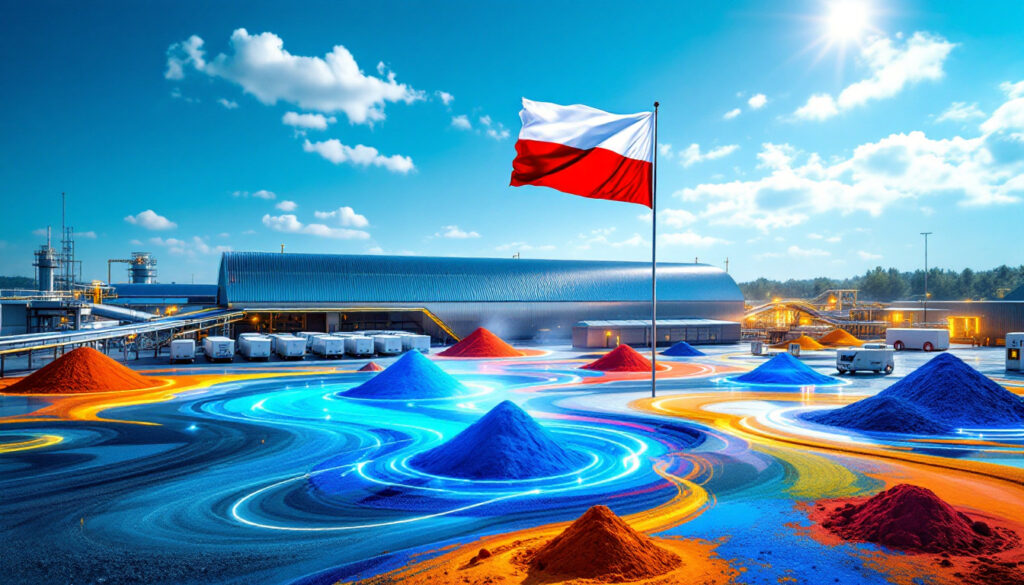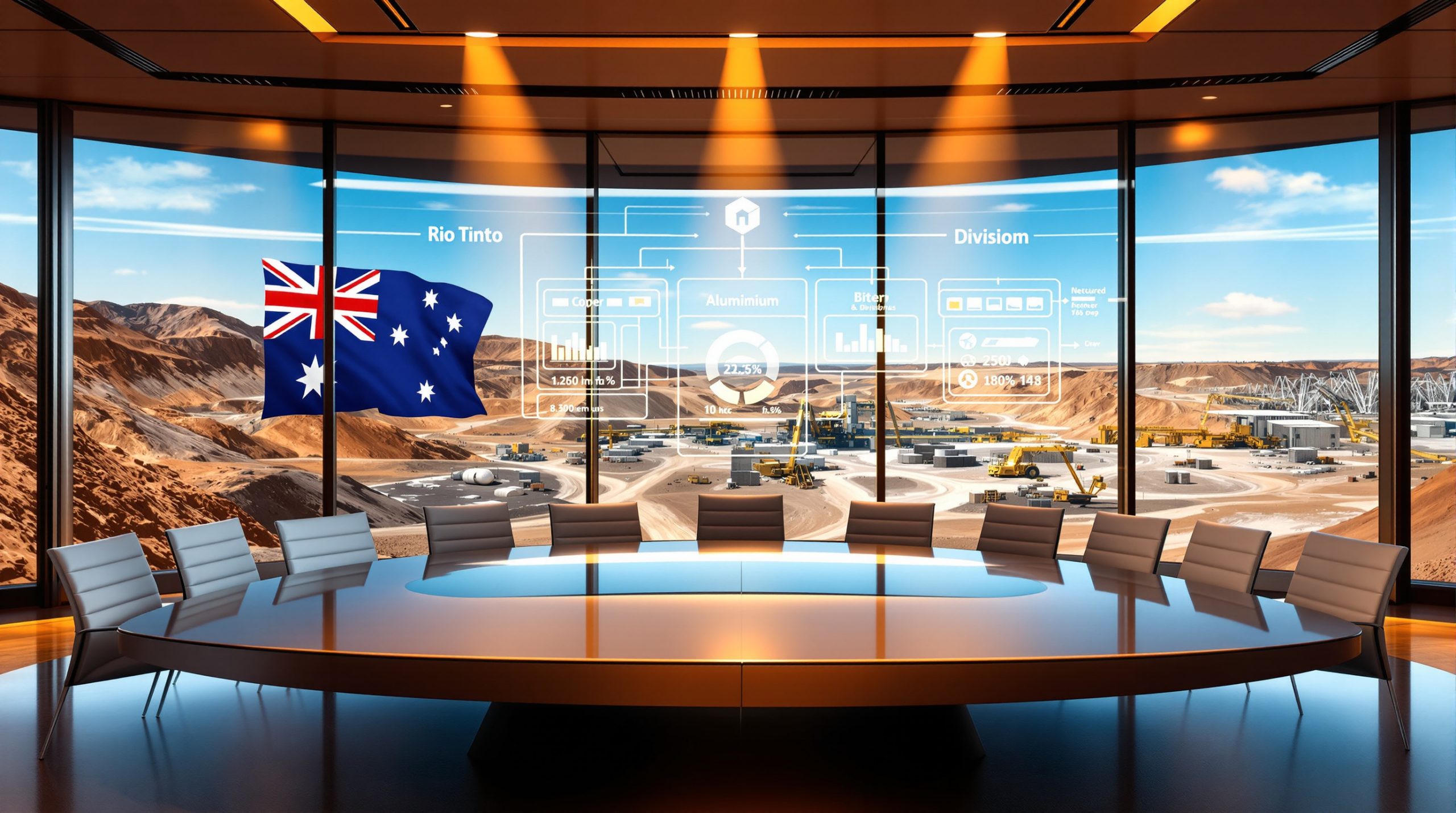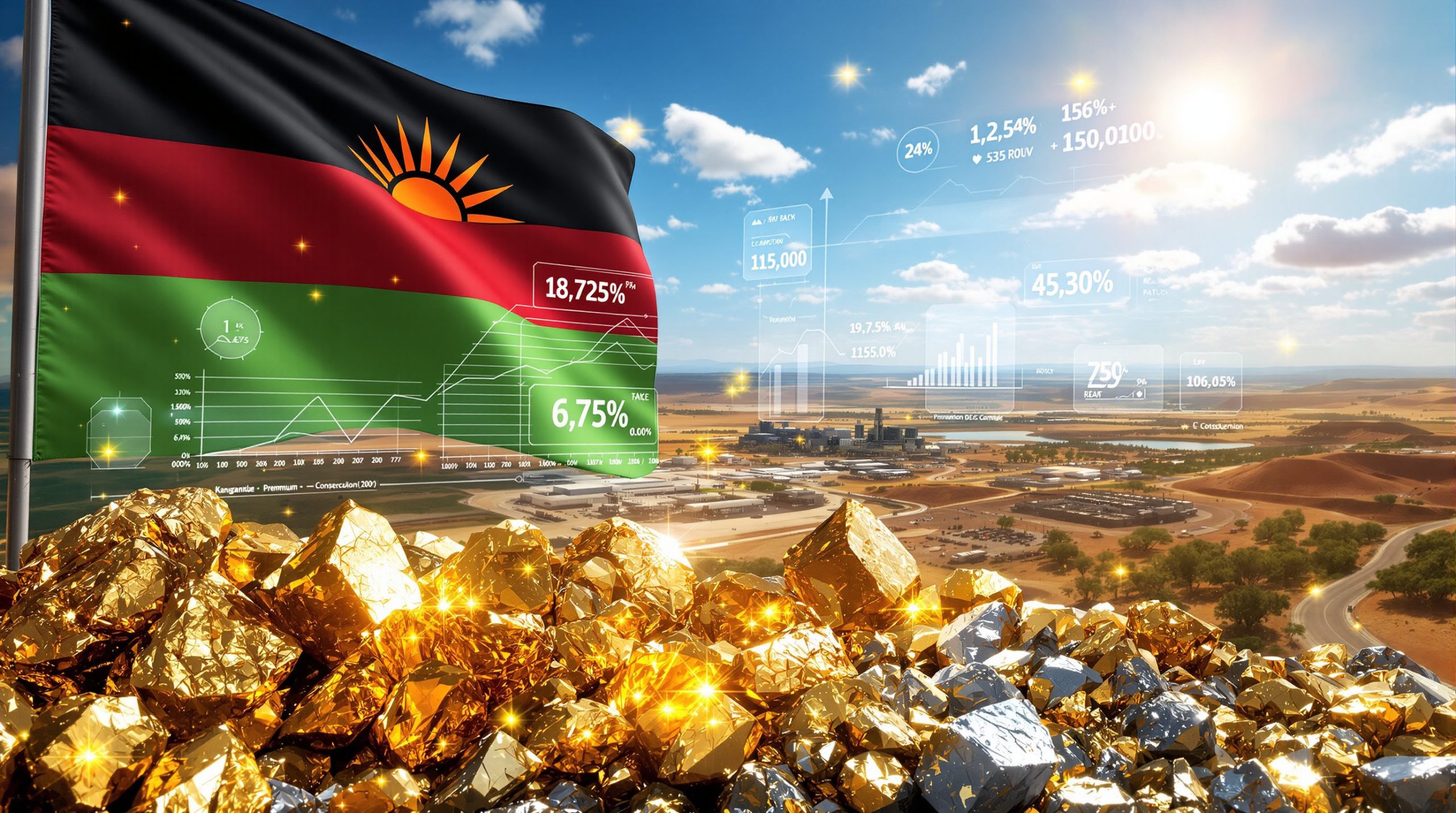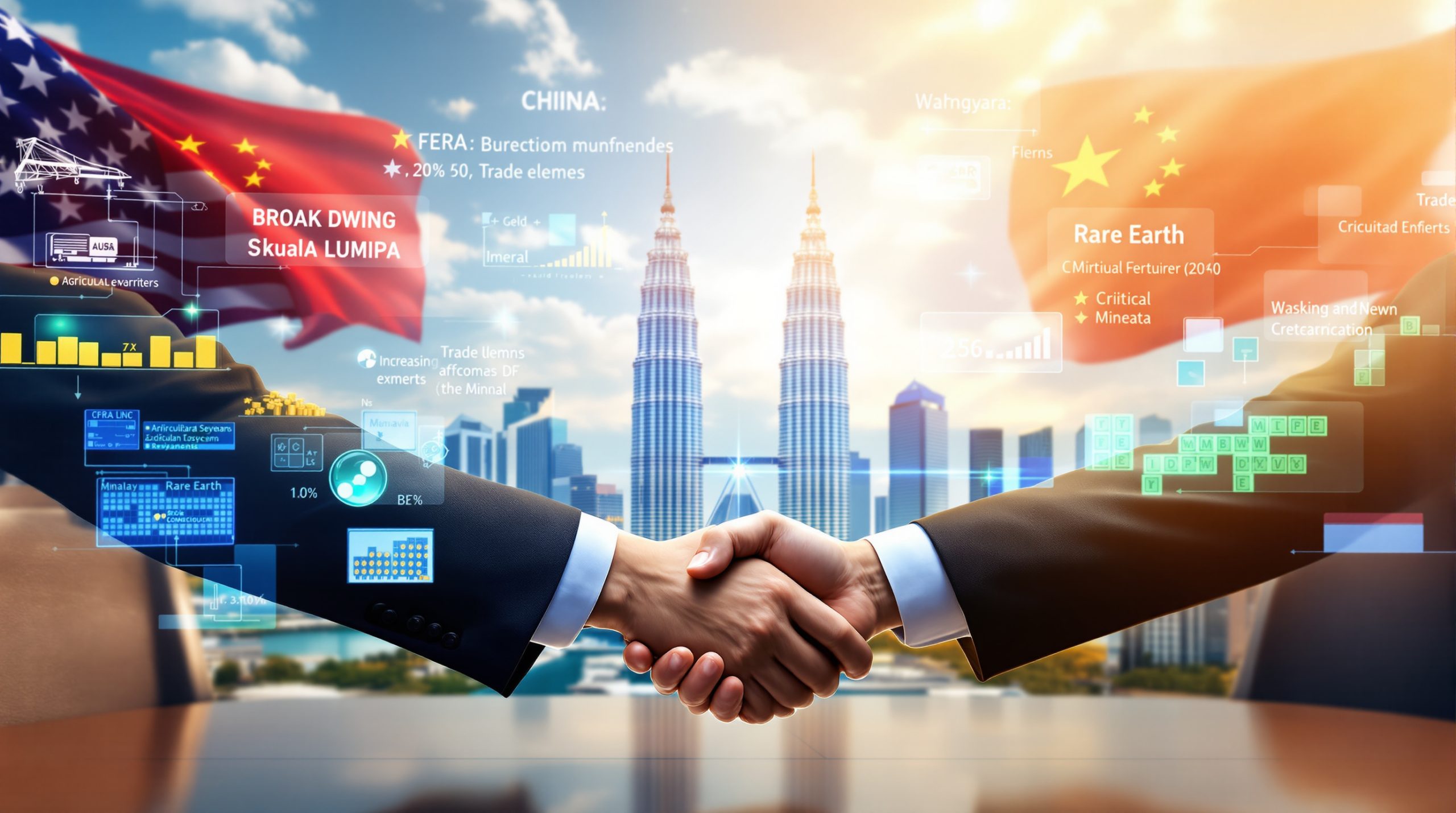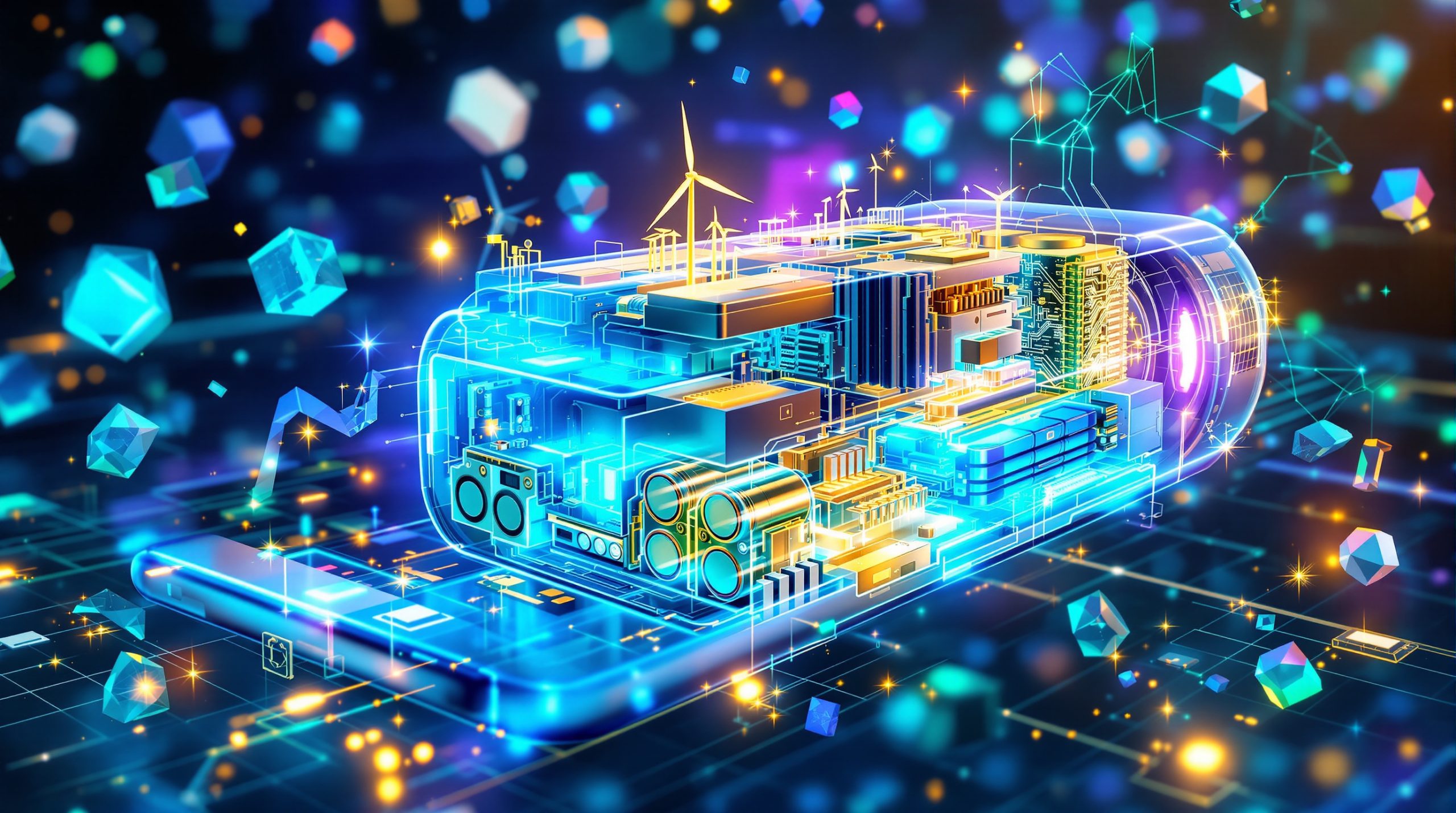How is Poland Attracting Battery Recycling Investment?
Poland's Ministry of Economic Development and Technology has made a landmark financial commitment to the battery recycling sector, offering Ascend Elements up to 1.22 billion Polish zloty (approximately €290 million or $320 million) in grant funding. This represents one of the largest grants ever awarded by the Polish government and signals the country's determination to establish itself as a leader in sustainable battery material production within Europe.
Why is Poland Offering Millions to Attract Battery Recycling Technology?
The substantial financial incentive aims to support the construction of an advanced production facility for recycled cathode materials in Poland. This strategic investment aligns with the European Union's broader goals to develop domestic battery supply chains and reduce dependency on imported materials, particularly from Asia.
Poland's investment directly supports the EU Battery Regulation (2023/1542), which mandates that by 2030, new batteries must contain 12% recycled cobalt, 4% recycled lithium, and 4% recycled nickel. As the EU pushes toward greater resource independence, Poland is positioning itself as a crucial player in this transition.
"This project strengthens Poland's role in the European battery supply chain and supports regional economic development," notes Pawel Pudłowski, Vice President of the Management Board at the Polish Investment and Trade Agency (PAIH).
According to the European Commission's Critical Raw Materials Act, the EU aims to source 10-40% of its raw materials from recycling by 2030. Poland's investment in Ascend Elements directly contributes to this goal while simultaneously enhancing the country's industrial competitiveness.
Poland's Position in the European Battery Ecosystem
Poland currently accounts for approximately 3% of EU battery production (Eurostat, 2024), but the country has been systematically building its presence in the European battery value chain. This latest move reinforces Poland's commitment to becoming a central hub for battery recycling breakthrough and sustainable material production in Europe.
The country's industrial strategy cleverly leverages EU funding mechanisms like the Just Transition Fund to build recycling infrastructure, similar to Northvolt's €1 billion Swedish recycling plant that became operational in 2023.
"Poland's investment in battery recycling technology addresses a critical vulnerability in Europe's strategic autonomy plans," according to the Bruegel Institute's 2024 analysis of the EU's efforts to reduce dependence on Chinese battery materials.
Who is Ascend Elements and What Technology Are They Bringing to Poland?
Ascend Elements is a U.S.-based company specializing in innovative battery recycling technologies that transform end-of-life lithium-ion batteries into high-value materials for new battery production.
Ascend's Hydro-to-Cathode Technology Explained
The company plans to implement its proprietary Hydro-to-Cathode™ technology in Poland—a direct synthesis process (patent US2022156789) that creates new precursor cathode active material (pCAM) from recycled lithium-ion cells. This breakthrough process recovers more than 95% of critical metals from spent batteries (Ascend Elements, 2024).
What makes this technology particularly valuable is its ability to bypass traditional intermediate processing steps, directly converting battery black mass to pCAM containing nickel, manganese, and cobalt. This streamlined approach reduces energy consumption and produces 70% lower CO₂ emissions per kilogram of NMC material compared to traditional mining operations (Circular Energy Storage, 2023).
Existing European Footprint Through Strategic Partnerships
Ascend Elements has already established operations in Poland through a joint venture with Polish company Elemental Strategic Metals. The partners currently operate a battery recycling facility in Zawiercie that processes over 10,000 tons of battery waste annually.
"Our technology helps bridge the growing gap in cathode precursor supply and contributes to the EU's strategic net-zero goals," explains Tomasz Poznar, Ph.D., Senior Vice President of Commercial at Ascend Elements.
The new plant would be independently owned and operated by Ascend Elements, representing a significant expansion of their European presence beyond the Zawiercie joint venture.
What Economic and Environmental Benefits Will the Project Bring?
The planned facility represents a substantial economic investment in Poland's industrial sector while simultaneously addressing critical environmental challenges in battery manufacturing.
Job Creation and Technology Transfer
While specific job figures for the Polish facility haven't been announced, similar battery recycling operations in Europe typically create 300+ direct jobs. The project is expected to foster technology development through collaboration with local educational institutions, potentially supporting Poland's "Electromobility 2025" workforce development program.
"We're committed to building a sustainable supply chain for battery materials on both sides of the Atlantic," states Linh Austin, President and CEO of Ascend Elements, highlighting the company's global vision.
Closing the European Cathode Material Supply Gap
The facility aims to address Europe's growing cathode precursor supply deficit, which according to Benchmark Mineral Intelligence (2024) will reach approximately 500,000 tons per year by 2030.
By processing spent batteries locally, the plant will significantly reduce the environmental impact of battery production. Research from Fraunhofer ISI (2023) indicates that recycling lithium-ion batteries reduces CO₂ emissions by approximately 50% compared to using virgin mined materials.
This approach follows the successful model established by companies like Umicore, whose Belgian recycling plant already supplies approximately 20% of the EU's cathode material needs.
How Does This Compare to Ascend Elements' U.S. Operations?
Ascend Elements' European expansion comes at a time when the company is experiencing both growth and challenges in its home market.
Current U.S. Facilities and Development Status
The company currently operates a large battery recycling plant in Covington, Georgia, which processes approximately 30,000 metric tons of lithium-ion waste annually. However, construction of its planned hydro-to-cathode production facility in Hopkinsville, Kentucky—designed for 60,000 tons per year capacity—has been temporarily paused, with operations now scheduled to begin in late 2026.
Financial Setbacks in the U.S. Market
In February 2025, Ascend Elements agreed with the U.S. Department of Energy to cancel a $164 million grant for cathode active material (CAM) production at its Kentucky plant. This withdrawal of federal funding in the U.S. stands in stark contrast to the €290 million Polish grant offer.
When comparing investment environments, the Polish grant provides direct upfront funding, while the U.S. Inflation Reduction Act offers tax credits of up to $35 per kilowatt-hour for battery materials. The differences in these incentive structures, along with perceived political stability, may have influenced Ascend's strategic pivot toward Europe.
What Are the Global Implications for Battery Recycling Markets?
The Polish investment in Ascend Elements reflects broader shifts in the global battery recycling landscape, which is projected to reach $33.6 billion by 2030 (Grand View Research, 2024).
Tariff Impacts on Recycled vs. Virgin Materials
Eric Gratz, co-founder and chief technical officer at Ascend Elements, noted that U.S. tariffs could actually benefit domestic battery recycling operations: "Unlike battery manufacturers relying on virgin materials that would be subject to import tariffs, recyclers using domestic materials would be less impacted."
This observation is particularly relevant with the 25% tariffs the U.S. has imposed on Chinese lithium products (USTR, 2024). Market data supports this view, with recycled cobalt currently trading at approximately $45/kg compared to $55/kg for virgin material (London Metal Exchange, May 2025).
Creating a Transatlantic Sustainable Supply Chain
Linh Austin emphasized the company's commitment to "building a sustainable supply chain for battery materials on both sides of the Atlantic," suggesting a strategic approach to serving both European and North American markets.
The EU is also implementing its Carbon Border Adjustment Mechanism, which will increase costs for imported battery materials with high carbon footprints, further strengthening the business case for localized recycling operations.
When Will the Polish Facility Begin Operations?
While the grant offer represents a significant step forward, several milestones remain before the facility becomes operational.
Current Status of the Project Development
According to Ascend Elements, a location in Poland has already been identified for the battery recycling plant, though the company has not yet made a final investment decision. Based on industry standards, construction of pCAM plants typically requires 18-24 months once permits are secured.
The project will need to navigate Poland's permitting processes, which, while generally streamlined for strategic investments, must still comply with EU environmental regulations like the Industrial Emissions Directive.
Parallel Development of Lithium Carbonate Production
In addition to the pCAM facility, Ascend Elements has announced plans to scale up its business with recycled lithium carbonate in both the USA and Europe beginning in 2026, aiming to supply battery manufacturers with this critical material.
This development is particularly significant as lithium carbonate is a crucial component in cathode production and remains subject to significant price volatility in global markets.
How Does Battery Recycling Support Europe's Green Transition?
The investment in advanced battery recycling technology aligns with Europe's broader sustainability goals and regulatory framework.
Contribution to EU Circular Economy Objectives
The project supports the European Union's circular economy initiatives by establishing local recycling capacity for lithium-ion batteries. Currently, only about 5% of lithium-ion batteries in the EU are recycled (European Environment Agency, 2024), far below the potential.
"This project marks a critical step in transforming Europe's battery materials landscape and supporting the EU's net-zero goals," emphasizes Tomasz Poznar from Ascend Elements.
Compliance with EU Battery Regulation Requirements
The new EU Battery Regulation (2023/1542) imposes a 70% recycling efficiency mandate by 2030, along with specific recovery targets for individual metals. Facilities like the planned Ascend Elements plant will be crucial for helping manufacturers meet these regulatory obligations.
A key benefit of closed-loop recycling systems is reduced reliance on cobalt from the Democratic Republic of Congo, which currently supplies approximately 75% of global cobalt—a supply chain with well-documented ethical concerns.
The EU's REACH regulations also play an important role in standardizing recycled materials, ensuring they meet the same quality and safety standards as virgin materials.
What Challenges Might the Project Face?
Despite the significant government support, the project will need to navigate several potential obstacles.
Market Volatility and Battery Material Price Fluctuations
The economic viability of battery recycling operations can be affected by fluctuations in the prices of key materials. Cobalt prices, for example, have ranged from $30 to $60 per kilogram between 2020 and 2025 (London Metal Exchange).
Poland's energy costs—approximately €50/MWh compared to €40/MWh in Sweden—could also impact the facility's operational expenses and competitiveness within Europe.
Competition from Other European Recycling Initiatives
Several other companies are establishing battery recycling operations in Europe, creating a competitive landscape that could impact Ascend Elements' market position. Redwood Materials alone is investing €3.5 billion in European expansion (Financial Times, 2024).
Supply chain bottlenecks for collecting black mass—the shredded battery material that serves as the input for recycling processes—could also present a challenge as multiple recyclers compete for the same waste streams.
FAQ: Battery Recycling Investment in Poland
What is the value of Poland's grant to Ascend Elements?
Poland has offered Ascend Elements up to 1.22 billion Polish zloty (approximately €290 million or $320 million) to establish a battery recycling and cathode material production facility in the country.
What type of battery materials will the Polish facility produce?
The facility will produce precursor cathode active material (pCAM) containing nickel, manganese, and cobalt (NMC) using Ascend Elements' hydro-to-cathode technology.
Does Ascend Elements already have operations in Poland?
Yes, Ascend Elements has been active in Poland for about a year through a joint venture with Polish company Elemental Strategic Metals, operating a recycling plant in Zawiercie.
How does battery recycling support sustainability goals?
Battery recycling reduces the need for newly mined materials, decreases waste, lowers carbon emissions associated with battery production by approximately 50%, and creates a circular supply chain for critical battery metals investment.
What advantages does Poland offer for battery recycling operations?
Poland offers strategic geographic positioning within Europe, government financial support, proximity to battery manufacturers, and access to skilled labor and technical expertise.
Comparative Analysis: Major Battery Recycling Investments in Europe
| Company | Location | Investment Value | Technology Focus | Capacity (tons/year) | Status |
|---|---|---|---|---|---|
| Ascend Elements | Poland (location TBA) | €290 million (grant) | Hydro-to-cathode technology | TBA | Planning phase |
| Northvolt | Sweden | €1 billion | Integrated recycling & cell production | 125,000 | Operational |
| Redwood Materials | Multiple European sites planned | €3.5 billion (total European investment) | Anode & cathode material production | 200,000 (planned) | Expansion phase |
| Umicore | Belgium | €500 million | Battery recycling & precursor materials | 150,000 | Operational |
| BASF/Fortum/Nornickel | Finland | €400 million | Battery chemicals from recycled materials | 50,000 | Under construction |
"This project is more than a strategic investment in cutting-edge battery materials production — it marks a critical step in transforming Europe's battery materials landscape." — Tomasz Poznar, Ph.D., Senior Vice President of Commercial at Ascend Elements
Disclaimer: This article contains forward-looking statements regarding industry developments and company plans. Actual results may differ materially from these projections due to market conditions, regulatory changes, or other energy transition trends. Readers should conduct their own research before making investment decisions based on this information.
Want to Stay Ahead of Major Mining Discoveries?
Discover why significant mineral findings like those covered in this article can lead to exceptional market returns by exploring Discovery Alert's dedicated discoveries page. Experience real-time notifications powered by the proprietary Discovery IQ model and gain your market-leading edge with a 30-day free trial at https://discoveryalert.com.au/discoveries/.
